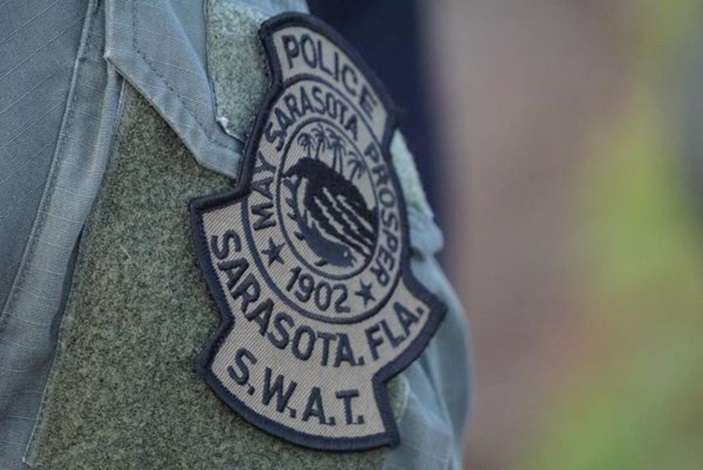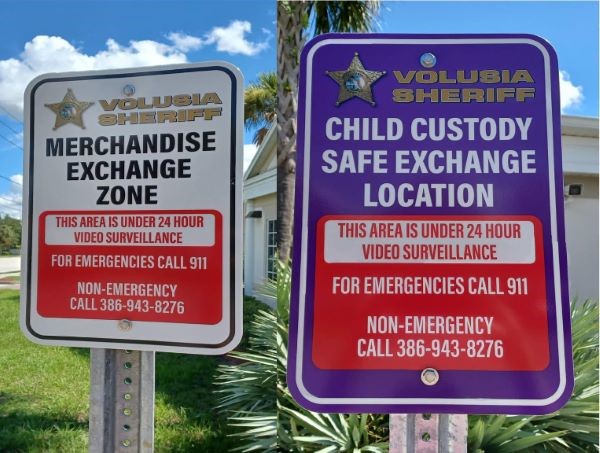
Every year, July 1 is a day when respective states’ new legislative actions take the stage for showtime. Typically, a bevy of new statutes bloats the books, with some influenced by national trends creating havoc for citizens and first responders alike. Swatting, Squatting, and Safe Exchange spaces to conduct child custody transitions are eyed by lawmakers and enforced by first responders.
Swatting
Swatting, in which a phantom individual places a 9-1-1 call entailing a purported emergency at a particular address, often with gruesome details engendering heightened responses by law enforcement, ordinarily activates SWAT teams in significant gear racing to the alleged scene…only to find out it was all a hoax.
One of the unfortunate factors resulting in the demise of first responders is justly racing to the scene to save lives, becoming a casualty in the process. To date, the Officer Down Memorial Page (ODMP) chronicled 14 “Automobile Crash” posts of cops who perished in the line of duty, trying to get to a call for service, coming in at the #2 spot behind “Gunfire,” the #1 spot with 25 casualties.
I’m not gonna expend too many vowels and consonants on how perilous it is for any law enforcement officer in any capacity or any specialized unit to expedite their response to a scene, whether real or fictitious. It’s a given! Hence, the beefed-up statutes for anyone apprehended for spinning a Swatting yarn.
In Georgia, State Senator Clint Dixon (R) was the victim of a Swatting incident hatched by a 15-year-old kid angered by losing in online gaming. A brief WSB Atlanta news clip contains some pretty graphic fibs uttered by the young swatter into the ears of a 9-1-1 operator…activating an emergency response that placed all first responders in needless danger. Swatting is now a felony whose penalties are increased.
Squatting
Pointing fingers at conditions that make life more difficult is easy—it is tough out there. Some individuals have been extremely bold by taking occupancy and holding hostage anyone’s rightfully owned property by merely moving in as if it were theirs to possess, leaving actual owners of record in the lurch, outside.
Until new laws were availed on July 1, 2024…
In Florida, Governor Ron DeSantis (R) signed HB 621 into law, effectively “ending this squatter scam once and for all.”
Gov. DeSantis emphasized: “While other states are siding with the squatters, we are protecting property owners and punishing criminals looking to game the system.”
During an interview with Sean Hannity, Governor DeSantis had this to say: “We’ve got people that will be here for seven months of the year [otherwise known as “snowbirds”], and then they’ll go to Michigan or New York or even Canada. You come back after the summer and someone’s in your house, and then they just get to stay there for six months. Now in Florida, you call up, you fill out a form, the sheriff comes, and the sheriff kicks him out of your property.”
https://youtu.be/1P_3UasRAbw?si=aasleRxSD4n9JTEb
An example of squatters in Broward County, Florida, depicts the tentacle spread of sinister people who conjure ideas to steal homes. This was explained by the county property appraiser, whose scope of the fallout this writer hadn’t considered in expanded detail.
Now, law enforcement officers responding to reports of home crooks have statutory support to swift-evict squatters and hand the rightful owner his/her property. With this, the increasing bloat of property taxes paid by the lawful owner, begrudgingly subsidizing strangers who stole occupancy, has a relatively happy ending.
After recently reading how squatters in California have more rights (“adverse possession”) than the rightful homeowners, states declaring a no-nonsense approach by authoring laws to back cops going in and unseating illicit campers are a true homeowner’s salvation from a nightmare situation.
“If we don’t have private property rights, we will not have a free society, so it is the bedrock Florida stands by, and we’re proud to do it,” Gov. DeSantis touted.
Martin County Sheriff William Snyder echoed the governor, saying, “It gives us teeth to enforce the law and to return the home to the rightful owner. We’ll go right out there, and it’s our intention here in Martin County to get that home back into the hands of the rightful owner and get the trespasser out… and then I will provide them [the squatter] housing. They will not be unhoused. I’m putting them straight into my jail.”
Safe Exchange Space
Also in Florida as of July 1, 2024, all 67 county sheriff’s offices are mandated to implement designated Safe Exchange space for the transfer of custody of child/children between people who are in a domestic dissolution situation abiding by court-ordered scheduling of shared time with offspring of parties enjoined by a parenting plan endorsed by a judge.
Florida HB 385 (“Safe Exchange of Minor Children”) “requires sheriffs to designate areas as neutral safe exchange locations,” specifically marked by purple signs indicating the purpose, some painted with purple lines delineating parking spaces reserved for the purpose. All exchanges must be video-recorded, the footage held by the sheriff’s office for a mandatory 45-day period.

(Photo courtesy of the Volusia County Sheriff’s Office.)
A Fox News report details the implementations by the sheriff’s offices and explains the impetus for this statute.
Polk County Sheriff Grady Judd and other county top cops emphasized how the new law has technically been preactivated for several years, primarily allowing designated spaces at law enforcement headquarters to serve as a monitored area for product exchanges between citizens, whereby buyers and sellers complete deals.
Such a concept was born out of an increasing number of robberies and violent encounters, some resulting in murders, stemming from well-intended purchasers duped by would-be sellers of products. This concept became known as “Murderous Meetups.”
“We want to create a safe zone where you can exchange children, buy or exchange products you buy online, and we’ve done this even before there was a law because we think it’s a great idea. We applaud the governor and the legislature for creating this law,” said Sheriff Judd.
Along with sheriff’s offices, municipal police departments have also attributed safe spaces for such exchanges. The basic premise is that whatever exchange is to transpire, is done so under the watchful eye of primary law enforcement facilities (versus part-time substations elsewhere in the jurisdiction) so that community members can have a sense of protection, knowing that meetings are recorded by police compound surveillance systems.
Volusia County Sheriff Mike Chitwood highlighted the new Safe Exchange law: “You can also use these locations for safe exchange of merchandise, with video surveillance providing an extra level of security.
“Please keep in mind that no security camera can offer 100% guaranteed deterrence of any issues. We hope this service provides some assistance and peace of mind!”
Back in the day, my agency witnessed many child custody exchanges. As a police dispatcher (before I was a sworn officer), I’d look out the one-way-view windows and observe the thought-provoking nature of parents offloading children from one car to the other parent’s vehicle. Children would say goodbyes and hellos in a government lot. Most often, neither parent acknowledged the other.
The bitterness between parents was palpable: tense body language; scowling facial expressions, slamming car doors. Sometimes kids were asleep and didn’t notice. Other times children were seemingly conditioned to parental moods and went through the motions (emotions).
Years later, as a sworn officer, I was often dispatched back to the police station in response to complaints from one parent against the other: “He’s 10 minutes late. He’s in violation! I want him arrested!”
These domestic conditions stipulated by a Family Court judge are considered “civil matters.” With such circumstances, our department policy was to issue an Incident number and refer the party to the court whose judge ordered certain stipulations in the parenting plan affidavits.
If a judge wanted to obtain recorded footage of the would-be violation of his/her parenting plan, it would have to be done pronto; our department policy didn’t contain archiving surveillance footage for very long (I recall mentions of “storage” logistics). Now, the statute mandates county sheriffs retain the recordings for a month and a half.
These and other laws rolled out on July 1 follow those that hit the books on January 1, equating to generally beefing the law books biannually.
Make a difference support NationalPolice.org